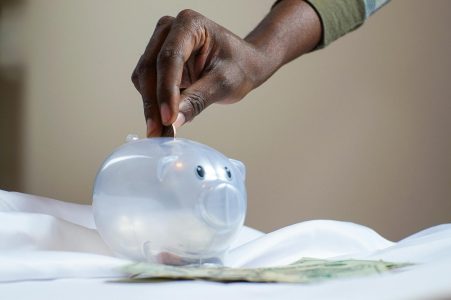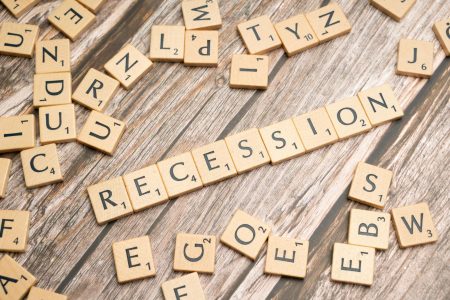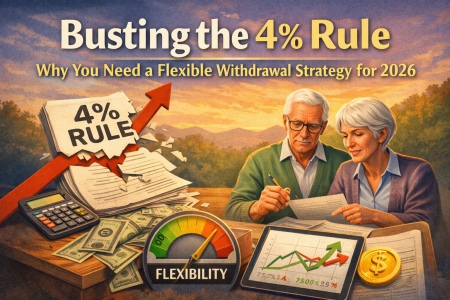Most people associate retirement with family time, leisurely mornings, golf, and traveling. For entrepreneurs, however, that image is rarely accurate. Our brains are wired differently. We thrive on building, solving, and creating momentum from chaos. When we eventually sell the company or step away, the question isn’t just, “What shall I do?” but “Who am I without my business?”
After decades of living in startup mode, “retirement” no longer means what it once did. Instead of stepping back from work, founders must redefine what purpose looks like without the 60-hour work week.
Table of Contents
Toggle1. The illusion of the “finish line.”
For many entrepreneurs, the ultimate dream is to reach the exit, the moment when years of dedication and hard work pay off. Even so, it rarely feels as expected when it occurs.
While roughly 70% of business owners agree that exit planning is essential, only about 15% of baby boomer entrepreneurs actually prepare for it. Despite widespread education about succession and exit strategies in countries such as the U.S., U.K., and Australia, fewer than one in three business owners prepare for life after sale.
And that lack of preparation isn’t just financial. It’s deeply emotional.
Over the years, you’ve chased growth charts, tracked revenue milestones, and managed a team. All of a sudden, it’s gone—no meetings, targets, or customers. Overnight, your external structure that defines your purpose disappears.
Based on my experiences and conversations with dozens of founders who have sold their companies, nearly everyone says the same thing: “I thought I was finished. I wasn’t.”
The truth is that selling your business doesn’t end the story — it’s just the end of a chapter. Often, the next stage is more challenging: rediscovering yourself without the company you built.
2. You can sell the business, but not the builder.
Entrepreneurship is more than an occupation — it’s a personality type. Everywhere you look, you see opportunities. You crave challenges. From chaos, you build systems. When you sell your company, that drive doesn’t disappear.
Even after a big exit, many founders return to investing, advising, or launching new companies. It’s sometimes about passion, but most of the time, it’s about patterns. After all, it feels unnatural for your brain not to build anymore.
Founders often don’t stop after one success; they simply move on to the next. For instance, Jyoti Bansal sold AppDynamics to Cisco for nearly $4 billion before launching Harness, an automated software delivery platform. After selling LiveRamp, Auren Hoffman founded SafeGraph, continuing his mission to make data more accessible and valuable. Lew Cirne, who sold Wily Technology for $375 million, founded New Relic, another groundbreaking software company. In addition, Andreas von Bechtolsheim, an early investor in Sun Microsystems, co-founded Arista Networks.
Even Steve Jobs couldn’t stay away. After leaving Apple, he founded NeXT and acquired Pixar, two companies that shaped entire industries.
And it’s not just tech titans. Many small-business owners reinvent themselves, becoming angel investors, mentors, or community leaders.
“Retirement” often means reinvention for entrepreneurs. While you might work less, you still have the same creative energy.
3. The emotional hangover after an exit.
When a business is sold, the months that follow can be disorienting. You have money in the bank, but a gap in your routine. After high-stakes and constant pressure, silence can feel like a loss.
Many entrepreneurs underestimate the amount of self-worth their businesses provide. When that structure disappears, a void remains that money cannot fill. It’s for this reason that post-exit depression exists. In an instant, all the adrenaline you’ve been relying on for years is gone.
Before you sell, prepare for the transition by following these steps:
- Create a personal mission. Think about what impact you want to make beyond your business.
- Build non-business communities. Develop friendships outside of your industry.
- Experiment before the exit. While still running your business, explore hobbies, philanthropy, and side projects.
- Work with a coach. You can separate your identity from your business by looking at it from an outside perspective.
When it comes to retirement, entrepreneurs don’t stop — they just shift their focus.
4. The new definition of “retirement.”
Retirement is typically thought of as a time when you stop working because you have to. However, entrepreneurs often keep working because they want to. The goal isn’t to escape labor; it’s to gain freedom.
Freedom can take many forms:
- Advising or mentoring. To assist the next generation of founders in scratching the same itch without taking the same risks.
- Starting a passion business. You may want to start a local coffee shop or a niche e-commerce business if you prefer it over scalability.
- Investing. Investing in startups or causes you believe in.
- Philanthropy. The same strategic mindset can also be applied to social good when entrepreneurs rediscover purpose through giving.
The happiest “retired” entrepreneurs I know aren’t idle. They’re just working on different terms, with more autonomy, choices, and alignment.
Related: How to Turn Your ‘Marketable Passion’ Into Income After Retirement
5. Designing your next chapter before you exit.
If you’re still running your business, start planning for what’s next. Freedom without direction can feel like hiking without a compass.
Here are a few things that help:
- Define what success looks like post-exit. Freedom, family time, impact, or creativity?
- Plan how you’ll spend your days. Structure is important. After selling, make a loose schedule for the next six months.
- Protect your time. Don’t accept every pitch or board seat right away. Give yourself time to rest and think.
- Reinvest with purpose. Don’t just focus on ROI—align your next move with your values.
With the same clarity with which you once built a company, you can now design the next chapter of your life.
6. What really lasts.
Entrepreneurship never fades, no matter how many businesses come and go. The instinct to solve problems, create value, and push boundaries. You don’t retire from that.
When founders transition well, they see their next chapter as another startup — only this time, the product is their life. By setting goals, experimenting, iterating, and learning continuously, they have built their business.
You have options when you have money. But your purpose gives you direction. Real fulfillment comes from balancing both.
The bottom line.
Do entrepreneurs ever really retire? Not in the traditional sense. While we may sell companies, step back, or slow down, the creative spark that gave birth to what we now take for granted rarely fades.
In the next stage of the journey, it’s not about chasing another exit; it’s about chasing meaning. It is only when your time, money, and purpose align that true freedom can be achieved.
Image Credit: Marcus Aurelius; Pexels
















